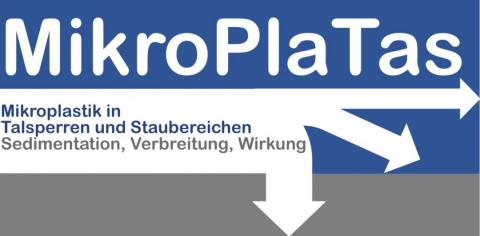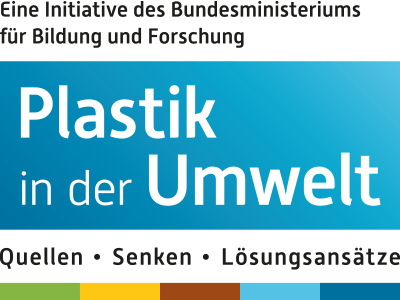MikroPlaTaS
MikroPlaTas

PD Dr. Katrin Wendt-Potthoff
Helmholtz Centre for Environmental Research – UFZ,
Department of Lake Research
Brückstraße 3a
39114 Magdeburg
Phone: +49 391 8109810
e-mail: katrin.wendt-potthoff@ufz.de
The spread of microplastics in rivers showed that along a given waterway there are sources as well as sinks. Thus, dams and reservoirs constitute important but until now hardly investigated parts of a water system that serve as examples for risk vs. usefulness of sedimentation of microplastics. Biofilms, which grow on microplastics, have a special significance for their transport and sedimentation. The goals of this project were (I) to identify and characterise microplastic in water and sediment, (II) to understand how biofilms form on plastic and how sedimentation occurs on these grown-over particles, (III) to record how microplastics affect and are taken up by individual organisms as well as by entire communities in model ecosystems, and (IV) to synthesise the scientific results and draft practical recommendations based on them. This synthesis emphasised identifying pathways to eliminate microplastics and to derive practical measures and risk assessments together with the project partners.
Main areas of work
- Distribution and sedimentation of microplastics and fauna in situ
- Characterisation of microplastics with regard to biofilm communities and sedimentation mechanisms
- Direct effects of microplastic on invertebrate species and complex biocenoses
- Influence of plastics on the food quality of biofilms for Grazer
WP 1 Survey plastics and meio- and microfauna in dams and reservoirs
Contact person
PD Dr. Katrin Wendt-Potthoff, UFZ, Department of Lake Research, Brückstraße 3a, 39114 Magdeburg, e-mail: katrin.wendt-potthoff@ufz.de
Project partner
WWU, Bielefeld University
Short description
The aim was to estimate the contamination of various dammed waters with microplastics, to identify the relevant polymers and to determine the respective typical macro- and meiofauna. Different service water reservoirs (e.g. Bautzen in Saxony) as well as the dammed Ems, the Lippe and the former Rieselfelder Münster in North Rhine-Westphalia were adhesively investigated.
WP 2 In situ experiments on sedimentation rates and settlement
Contact person
PD Dr. Katrin Wendt-Potthoff, UFZ, Department of Lake Research, Brückstraße 3a, 39114 Magdeburg, e-mail: katrin.wendt-potthoff@ufz.de
Project partner
WWU, Bielefeld University
Short description
The aim was to determine field sedimentation rates in the course of a year with regard to total mass and microplastics. For this purpose, sediment traps were applied to the deepest points of the waters, at minimum, and evaluated monthly with regard to the total mass of plastics and organisms of the meiofauna. As a result, a relationship is established between plastic load in the water column, total sedimentation rate and plastic sedimentation rate.
WP 3 Characterisation of biofilms on different polymers
Contact person
Prof. Dr. Bodo Philipp, University of Münster, Institute of Molecular Microbiology and Biotechnology, Corrensstraße 3, 48149 Münster, e-mail: bodo.philipp@uni-muenster.de
Project partner
UFZ, UP, Bielefeld University
Short description
In this work package, the microbial communities on plastic particles were examined with regard to taxonomic composition and function in order to derive hypotheses on processes at the sites that can be checked in WPs 4 – 6. Particular attention was paid to whether there is a characteristic microflora on microplastic particles and whether individual types of plastic differ. Furthermore, mechanisms of biofilm formation on microplastic particles were explained. Cultivation-dependent and -independent investigations were carried out with samples from WP 1 and WP 2 and later with mesocosmic samples (WP 5). A collection of strains is to be generated in the first project year so that it can be used for WP 5 and WP 6.
WP 4 Influence of biofilm colonisation, light and redox processes on microplastic sedimentation
Contact person
PD Dr. Katrin Wendt-Potthoff, UFZ, Department of Lake Research, Brückstraße 3a, 39114 Magdeburg, e-mail:katrin.wendt-potthoff@ufz.de
Project partner
WWU, Bielefeld University
Short description
Experiments under controlled conditions determined how light and redox ratios (concentration of O2 and iron) influence the sedimentation of plastic particles either directly or by controlling colonisation. The influence of these factors on sedimentation was studied to simulate the transition from pelagic to benthic habitat. To what extent light or darkness and oxic or anoxic conditions per se, but also their change, can control the sinking behaviour of plastic particles was determined.
WP 5 Direct effect of plastic particles on invertebrates
Contact person
Prof. Dr. Walter Traunspurger, Bielefeld University, Department of Animal Ecology, Konsequenz 45, 33615 Bielefeld, e-mail: traunspurger@uni-bielefeld.de
Project partner
WWU, UP, Ecossa, Mesocosm
Short description
The uptake and effect of microplastics for aquatic organisms was tested in experimental systems (single-species to model ecosystems) to assess risks for pelagic and benthic fauna. A harmful effect in the organism requires an uptake into the body, either through the ingestion of the particles themselves or through transfer in the food chain (biomagnification). In case of harmful effects, indirect effects (top-down, bottom-up) can occur and thus affect organisms not directly affected by microplastic. In order to evaluate the food web as fully as possible, experiments with increasing ecological complexity and relevance were carried out for pelagic and benthic invertebrates to elucidate the effect on organisms, populations and communities and to reduce the interpretation gap between laboratory and field results.
WP 6 Influence of plastics on the food quality of biofilm for meio and macro grazers
Contact person
Dr. Friederike Gabel, University of Münster, Institute of Landscape Ecology, Heisenbergstraße 2, 48149 Münster, e-mail: gabelf@uni-muenster.de
Project partner
UP, Bielefeld University, UFZ
Short description
The aim of this WP was to identify indirect effects of microplastic on meio and macrofauna organisms by influencing the nutritional basis. Biofilms (especially bacteria, fungi, protozoa) form an important food basis for meio and macrofauna in waters. The quality of these biofilms can therefore have a significant influence on the composition and vitality of the organisms grazing them. For grazing experiments, macro invertebrates were offered different overgrown plastic strips for grazing. Ingestion and excretion rates, growth and, in the case of snails, the reproduction of organisms were investigated.
WP 7 Coordination, public relations, knowledge transfer
Contact person
Dr. Friederike Gabel, University of Münster, Institute of Landscape Ecology, Heisenbergstraße 2, 48149 Münster, e-mail: gabelf@uni-muenster.de
PD Dr. Katrin Wendt-Potthoff, UFZ, Department of Lake Research, Brückstraße 3a, 39114 Magdeburg, e-mail: katrin.wendt-potthoff@ufz.de
Project partner
UP, Bielefeld University, Ecossa, Mesocosm
Short description
The aim was to communicate project results to specific target groups both within the consortium and to the general public (children, students, authorities and scientists). The practical partners (The State Reservoir Administration of Saxony, Lower Water and Landscape Authority of the City of Hamm, Academy of nature and Environmental Protection NRW) played an important role here. The multiplier effect of the addressed target groups promoted the project results and the topic of plastics in the environment and this sensitisation created a broader acceptance for the recommendations for action that arose from the research focus.
